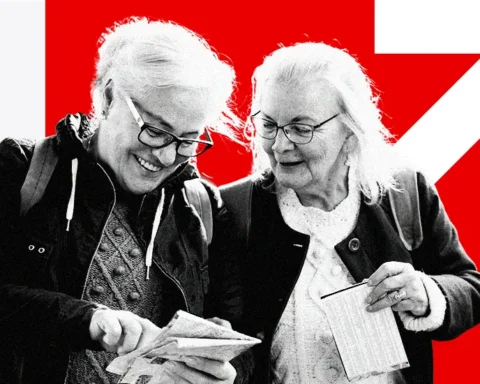The recent Deloitte Canada report reveals a concerning trend among Canadian near-retirees. As they approach retirement, many Canadians face the harsh reality of needing to make substantial lifestyle adjustments. Deloitte’s analysis of 4,000 Canadians aged between 55 and 64 highlights the varied levels of retirement readiness, shedding light on the financial challenges that loom for the baby boomer generation. Hwan Kim, a partner at Deloitte Canada, emphasizes the gravity of the situation, stating, “What we found was quite staggering.”
The report categorizes near-retirees into three groups based on their financial readiness for retirement. A mere 14% are expected to retire comfortably, possess financial assets of $900,000 or more, and own their homes. In contrast, nearly one million households anticipate relying primarily on public support like the Canada Pension Plan, positioning them as “particularly vulnerable” to unforeseen expenses.
The majority, constituting 55%, reside in the middle bracket. Some middle-income Canadians own their homes and must alter their lifestyles to prevent outliving their savings. Kim highlights the neglect of this group by both private and public sectors, stressing the need to address the “readiness gap” to prevent further financial strain on future generations.
Discussing the concept of retirement savings, Kim questions the focus on a singular savings target, advocating for a broader view encompassing income and expenses in retirement. Meanwhile, a Winnipeg-based financial planner, Jason Evans, emphasizes understanding individual inflation experiences and preparing for varied retirement scenarios.
Deloitte’s study also points out common underestimations in retirement planning, such as long-term care costs and the expenses associated with acquiring insurance at an older age. Kim advises considering these aspects alongside the potential misguidance of net wealth figures, especially for those heavily invested in real estate.
Kim calls for innovation and attention from the financial sector to develop products that enhance retirement readiness. He asserts that the near-retirees and financial institutions are responsible for providing better-informed choices.
Evans offers hope, suggesting that even a decade is sufficient for effective retirement planning. He advocates for financial audits and strategic spending adjustments to maximize savings and reduce future financial needs. Kim adds that post-retirement, maintaining certain investment risks might be beneficial to outpace the cost of living increases, challenging traditional investment strategies.
The Deloitte Canada report serves as a wake-up call for Canadian near-retirees, the financial sector, and policymakers. It underscores the pressing need for strategic financial planning, innovative financial products, and a reevaluation of traditional retirement advice. As Kim and Evans suggest, the path to a comfortable retirement is not just about the size of one’s savings but about making informed choices, adapting lifestyles, and strategically accessing retirement funds.







